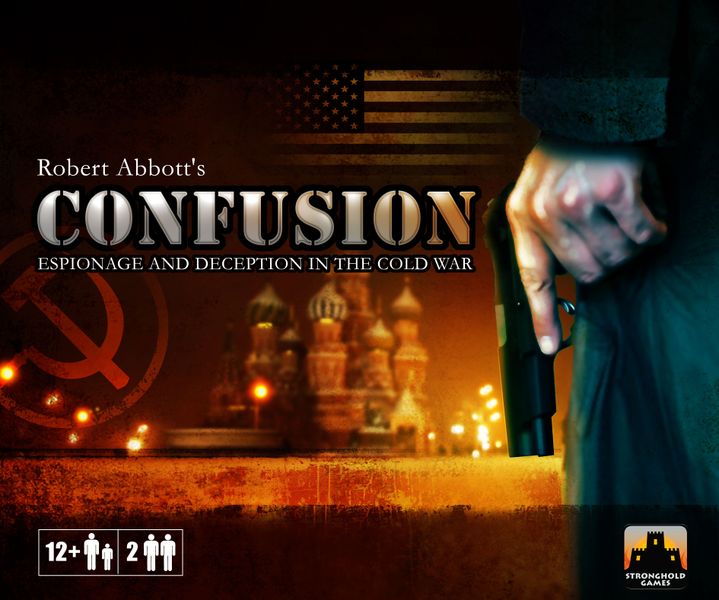Confusion: Espionage and Deception in the Cold War (1992) Board Game
Confusion: Espionage and Deception in the Cold War is a two-player abstract strategy board game designed by Robert Abbott and published in 1992 by franjos Spieleverlag. The game is set in the Cold War era and revolves around spies and secret agents engaging in espionage and deception.
Game Components of Confusion: Espionage and Deception in the Cold War
How To Setup Confusion: Espionage and Deception in the Cold War
Setup involves randomly placing the movement tiles into the spy pieces, ensuring neither player knows how their pieces move initially. Players then organize their tracking dossiers to keep track of their discoveries.
Gameplay Mechanics and Game Objective
Player Experience
Confusion is a game that challenges players from the very beginning. The unique twist of not knowing how your own pieces move adds a layer of complexity, but once players become familiar with the symbols and movements, it becomes an engaging and strategic game. It’s particularly suitable for older kids and adults looking to enhance their mental capacities through deduction and strategy.
Pros
Cons
Personal Thoughts on Confusion: Espionage and Deception in the Cold War
Confusion is a great fit for anyone seeking a challenging and strategic two-player game. It’s ideal for those who enjoy deduction and area control, and it serves as an excellent tool for developing mental skills. While it may not be the best choice for young children, it is a fabulous option for older kids and adults looking for a fun and intellectually stimulating game.
We are supported by our audience. When you purchase through links on our site, we may earn an affiliate commission, at no extra cost for you. Learn more.

